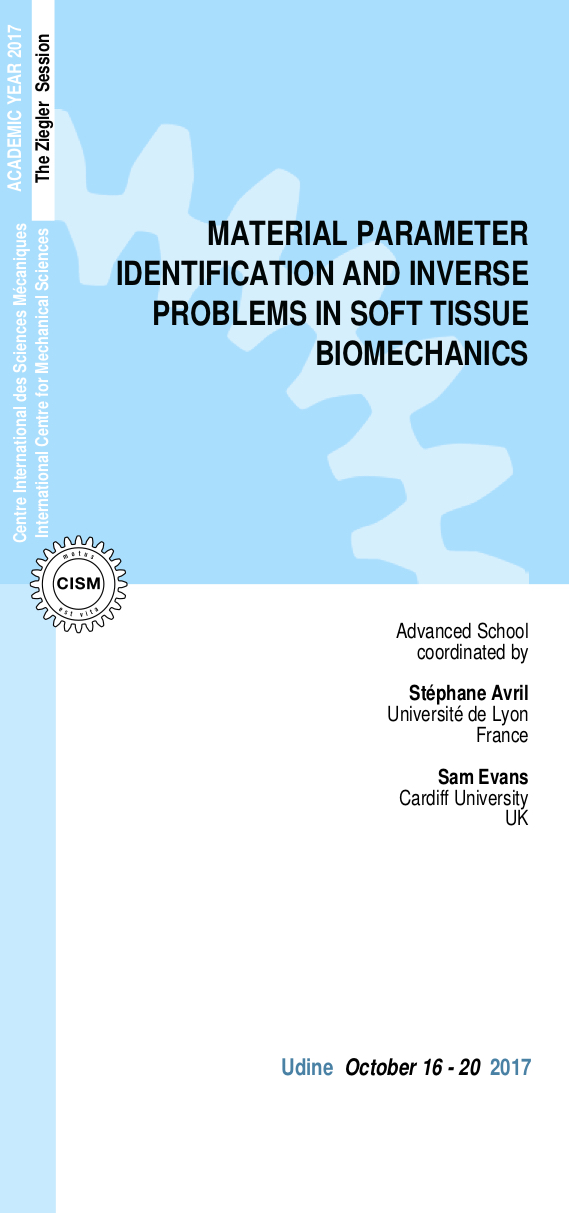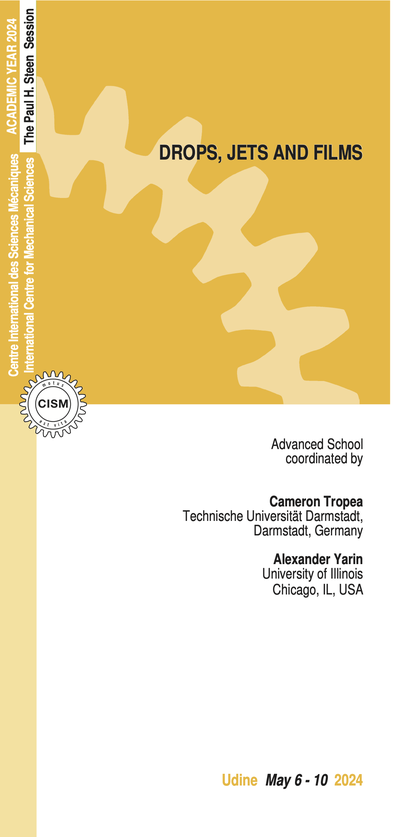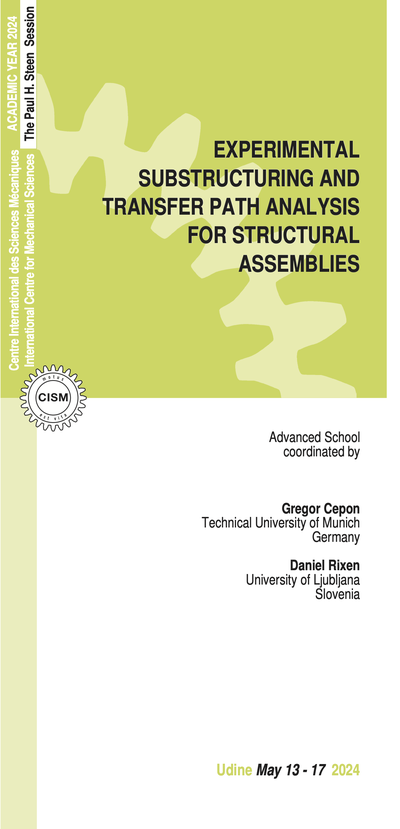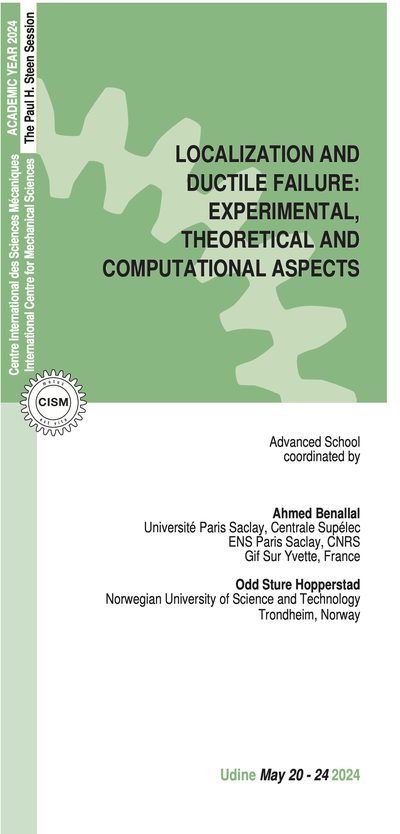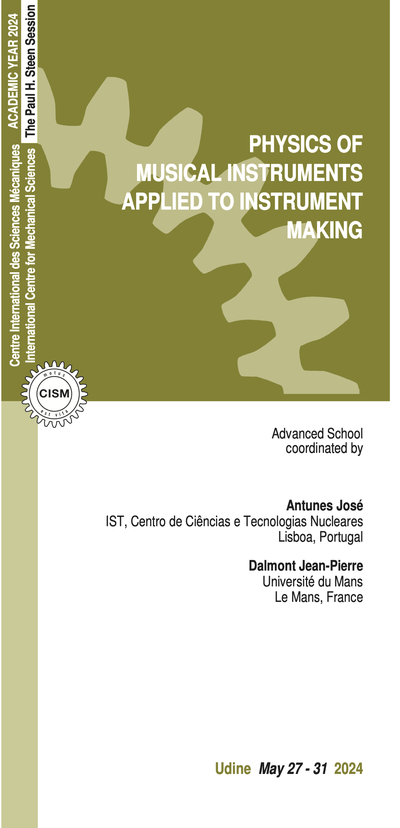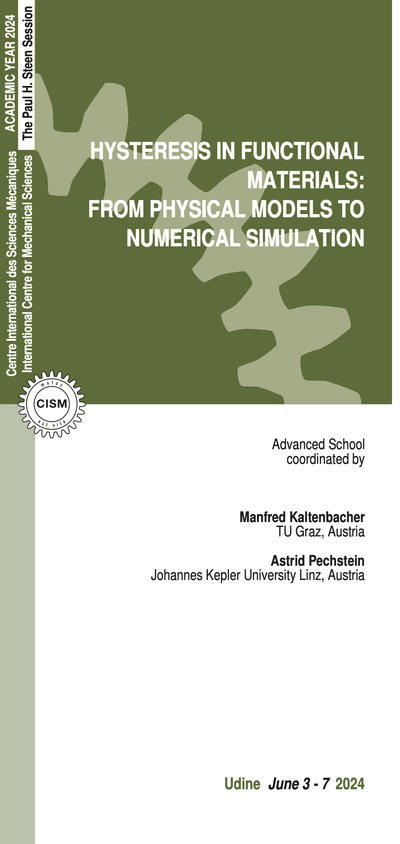This advanced school follows the very successful and popular school CISM C1511 that took place at Udine from 2015, Oct 12 to Oct 16. It gathered six of the best worldwide specialists in hybrid experimental - computational methods applied to soft tissues, to teach focused and highly original courses in this area. Forty delegates registered to this course. They all appreciated learning skills in this multidisciplinary environment. Repeating this summer school will continue addressing this clear need within the biomedical engineering research community. There are many fields in medicine and in biomedical engineering where accurate measurements of local soft tissue properties are needed. In general it is difficult to measure the mechanical properties of these materials directly and some kind of inverse approach is needed, where an experiment has to be simulated and the material parameters are adjusted until the model matches the experiment. Several open questions are raised by inverse approaches in soft tissue biomechanics: - Experimental measurements on biological tissues present many practical and theoretical difficulties. Experimental and numerical errors also increase the uncertainty, as do inadequate constitutive models. - An inverse problem requires a computational model that can be solved repeatedly with different material parameters. This requires a model that can be solved quickly and reliably; these are not attributes one usually associates with computational models of biological tissues. - Biological tissue mechanical behaviour exhibits special characteristics that may affect the mechanical response and disturb material identification, such as visco-elasticity, multi-scale properties, variability of properties and remodelling. Tissues often develop regionally varying stiffness, strength and anisotropy. Important challenges in soft tissue mechanics are now to develop and implement hybrid experimental - computational methods to quantify regional variations in properties in situ. - Once the necessary experimental data and computational models are in place, it is essential to implement an appropriate optimisation strategy to adjust the material parameters to give the best match with the experimental results, and to consider issues of uniqueness of the identified parameters. - the question of uniqueness can be tackled by increasing the quantity of experimental data. To this purpose, tracking the full-field deformation of tissues using optical measurements or medical imaging techniques becomes quite commonplace but these novel measurement approaches have only been recently applied to material identification of biological tissues and they still have to be well calibrated and validated for them. - It has also been identified that in certain situations useful patient-specific results can be obtained without precise knowledge of patient-specific properties of tissues. This situation arises for instance in image-guided surgery and modelling and analysis of thin-walled biological organs. Learning skills in this multidisciplinary environment is challenging, and rarely addressed to a sufficient level within classical degree programs. The advanced school will gather the best worldwide specialists in hybrid experimental - computational methods applied to soft tissues, to teach a focused and highly original course in this area. The course is addressed to doctoral students and postdoctoral researchers in mechanical and biomedical engineering, materials science, biophysics and applied mathematics, academic and industrial researchers and practicing engineers. Attendees should have an engineering background with reasonable knowledge of mathematics; the necessary biology will be taught from scratch. In addition to the theoretical background taught at the C1511 CISM school in 2015, it is planned for this new course to have hands-on sessions for a better practice of material parameter identification and inverse problems in soft tissue biomechanics.
S. Avril, S.L Evans Guest Edts. Inverse problems and material identification in tissue biomechanics - Special issue of the Journal of the Mechanical Behavior of Biomedical Materials, Volume 27, November 2013. J.D. Humphrey. Review Paper: Continuum biomechanics of soft biological tissues. Proceedings of Royal Society London A, January 2003 vol. 459, no. 2029, 3-46. S.A Maas, B.J. Ellis, G.A. Ateshian, J.A. Weiss. FEBio: Finite Elements for Biomechanics. Journal of Biomechanical Engineering, 134(1):011005, 2012. H.R.C. Screen. Hierarchical approaches to understanding tendon mechanics. Japan Society of Mechanical Engineers Journal of Biomechanical Science and Eng-ineering, vol. 4, (4) 481-499, 2009. M. Geerligs, L.C.A. van Breemen, G.W.M. Peters, P.A.J. Ackermans, F.P.T. Baaijens, C.W.J. Oomens, In vitro indentation to determine the mechanical properties of epidermis, Journal of Biomechanics, 44, 1176-1181, 2011. L. Dubuis, S. Avril; J. Debayle, P. Badel. Identification of the material parameters of soft tissues in the compressed leg. Computer Methods in Biomechanics and Biomedical Engineering, 2012, 15(1) pp 3-11. G. Martufi and T.C. Gasser. Review: The role of biomechanical modeling in the rupture risk assessment for abdominal aortic aneurysms. J. Biomech. Eng. 135:021010. doi: 10.1115/1.4023254, 2013. R.B. Groves, S.A. Coulman, J.C. Birchall, S.L. Evans. An anisotropic, hyperelastic model for skin: Experimental measurements, finite element modelling and identification of parameters for human and murine skin. Journal of the Mechanical Behavior of Biomedical Materials, 18, 167-180, 2013. J. Vincent. Structural Biomaterials: Third Edition. Princeton University Press, 2012. S. Avril and S.L. Evans editors. Material parameter identification and inverse problems in soft tissue biomechanics. Textbook edited after the C1511 CISM school held in 2015, in press, Springer.
Stéphane Avril (None)
6 lectures on: Advanced experimental approaches for soft tissue mechanics: full-field measurement techniques, imaging techniques, Introduction to inverse problems, Identification of material parameters from full-field measurements, Characterization of maps of material parameters at different scales.Sam Evans (None)
6 lectures on: Modeling approaches for soft tissues biomechanics, basics of continuum mechanics and possible alternatives, hyperelasticity, poroelasticity, other constitutive equations, FE modeling, link between experiments and modeling.Christian Gasser (None)
6 lectures on: Characterization of damage and failure mechanics of soft tissues, local analysis of rupture modes in soft tissues, experimental characterization and numerical implementation.Amit Gefen (None)
6 lectures on: State-of-the-Art Bioengineering Wound Research: Developing Chronic Injury and Healing Models from a Cell to the Tissue and Organ Scales.Cees C.W.J. Oomens (None)
6 lectures on: What do the material parameters tell us about the soft tissues? Remodeling of tissues, inflammation, ulcers, ageing, diseases.Hazel Screen (None)
5 lectures on: Tissue biology basics. Where do the mechanical properties of soft tissues come from?Link between microstructure and macroscale properties, and experimental characterization techniques.
The registration fee is 575.00 Euro + VAT taxes*, where applicable (bank charges are not included). The registration fee includes a complimentary bag, four fixed menu buffet lunches (on Friday upon request), hot beverages, downloadable lecture notes and wi-fi internet access. Applicants must apply at least one month before the beginning of the course. Application forms should be sent on-line through our web site: http://www.cism.it. A message of confirmation will be sent to accepted participants. If you need assistance for registration please contact our secretariat. Applicants may cancel their course registration and receive a full refund by notifying CISM Secretariat in writing (by email) no later than two weeks prior to the start of the course. If cancellation occurs less than two weeks prior to the start of the course, a Euro 50.00 handling fee will be charged. Incorrect payments are subject to Euro 50.00 handling fee. A limited number of participants from universities and research centres who are not supported by their own institutions can be offered board and/or lodging in a reasonably priced hotel or student dormitory, if available. Requests should be sent to CISM Secretariat by July 26, 2017 along with the applicant's curriculum and a letter of recommendation by the head of the department or a supervisor confirming that the institute cannot provide funding. Preference will be given to applicants from countries that sponsor CISM. Information about travel and accommodation is available on our web site, or can be mailed upon request.
* Italian VAT is 22%.
